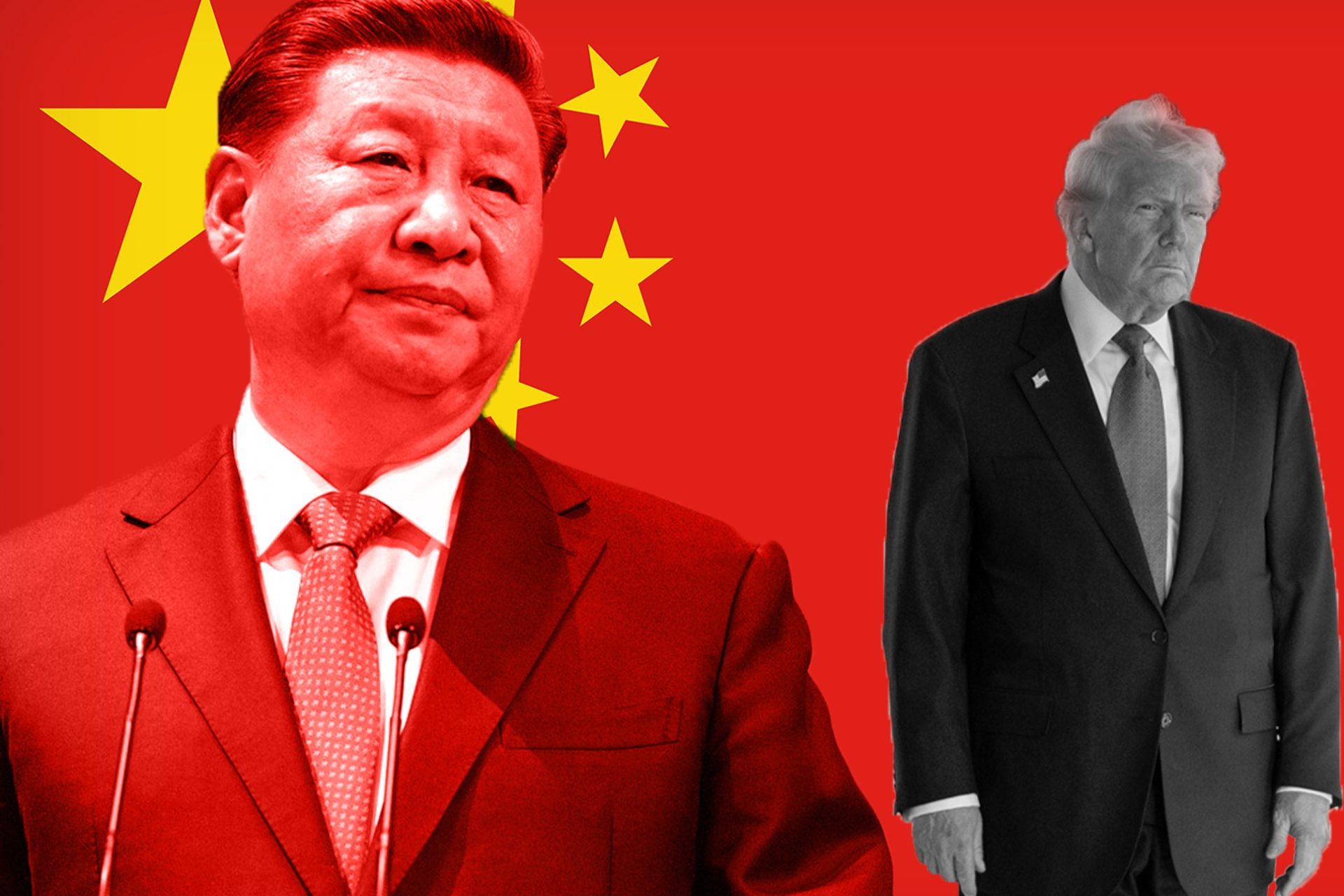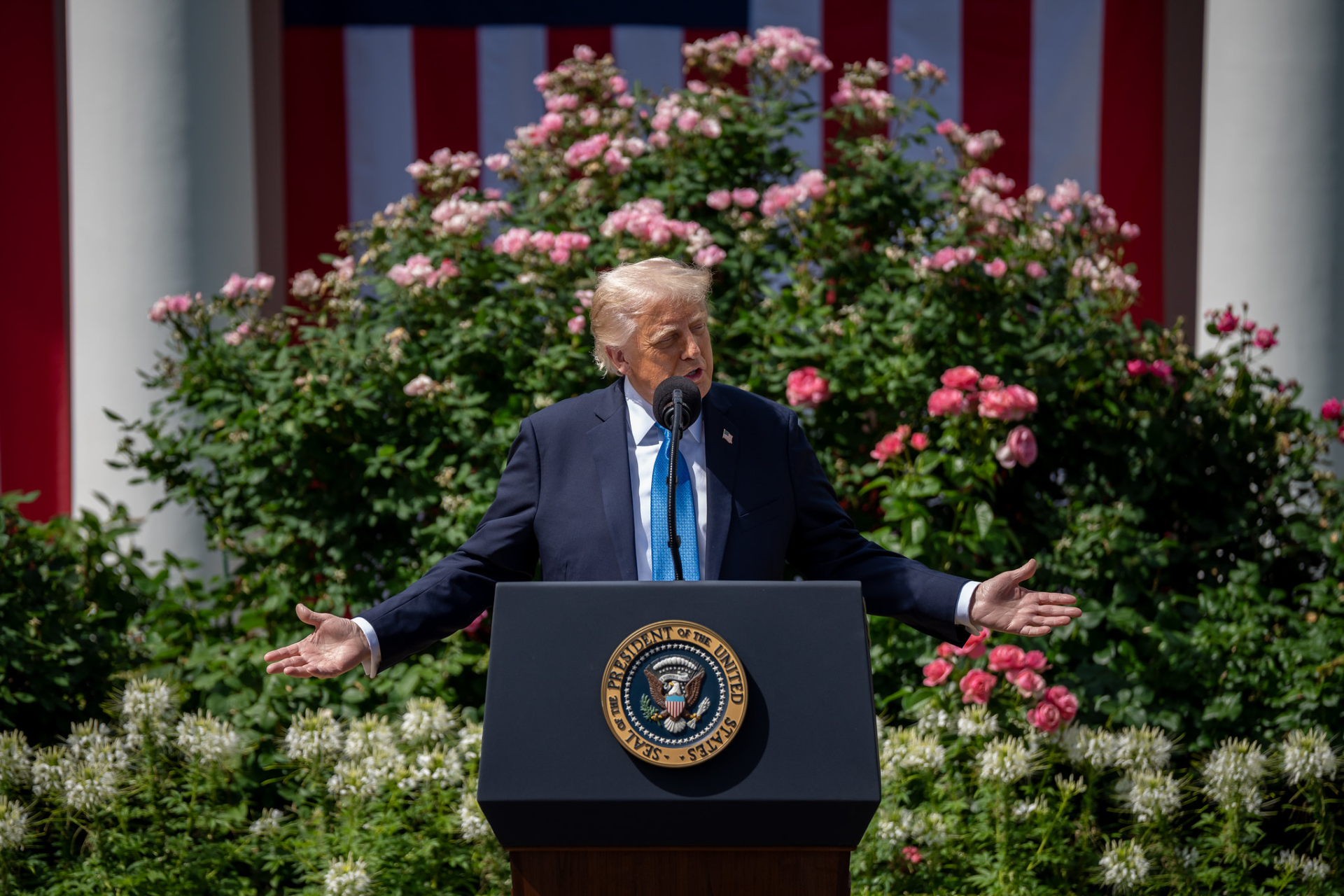
On 12 May, little more than a month after Trump launched massive tariffs on China on 2 April, a ceasefire in the US-China trade war was declared. The crippling tariffs, which effectively meant each country’s economy was sealed off from the other, have now been paused for 90 days.
Why were they suddenly called off? According to Trump’s team, the negotiations had been extremely friendly and good natured. But what was actually agreed? What actually changed that meant the tariffs should be paused? Seemingly, the only agreement was to keep on talking.
So, Trump launched the most spectacular trade war the world has ever seen, as a weapon to get China to… start talking – something it had always offered to do. Despite the removal of the shockingly high tariffs, China has made no concessions. It would appear we are back at square one.
In fact, we are not back to square one, however, because this brief skirmish has revealed a few things. It has revealed that China, unlike almost all other countries, was prepared to fight back and talk very tough, and has been seemingly rewarded for doing so.
Trump launched an extremely ambitious and aggressive trade war with China and the world before attempts at negotiation, and has backed down without having won anything from China, which was the main enemy. In doing so, he has shown the world America’s weaknesses before it starts negotiating. What all this has shown is that the US economy would suffer greatly in any trade war and that the administration is afraid of the consequences.
This is very important, because in almost all cases Trump has merely paused very high tariffs for 90 days. This puts his administration under enormous pressure to negotiate a vast number of trade deals in very little time. Trade deals are typically very complex and very hard to agree to, as each country has special interests, such as automobile manufacturers, rice farmers, etc., that need to be placated, as well as strategic interests to defend.
In making huge tariff threats, and then backing down, as he has done several times already, he is like the boy that cried wolf. His threats look increasingly unserious, especially after China showed that he can be made to back down.
According to Reuters,
“Japan’s top trade negotiator, Ryosei Akazawa, said on Tuesday there was no change to Tokyo’s stance of demanding an elimination of U.S. tariffs in bilateral trade negotiations.
“‘Tokyo will not rush into clinching a trade deal if doing so risked hurting the country’s interests’, he said.
“‘The slew of U.S. tariffs including reciprocal tariffs as well as those on automobiles, car parts, steel and aluminium, are regrettable. There’s no change to our stance of seeking a review, which is to say an elimination, of them,’ Akazawa told a regular press conference.”
Japan is a close US ally, and had reportedly been ‘at the front of the queue’ for a trade deal, which it was keen to finalise quickly. Now Japan seems to be in less of a rush and is firm on its demands. It has learned that Trump needs a deal more than they do.
Bloomberg makes precisely this point:
“China’s defiant stance in negotiating a tariff truce with the US has convinced some countries they need to take a tougher position in their own trade talks with the Trump administration… Many countries will look at the outcome of the Geneva negotiations [with China] and conclude that Trump has begun to realize that he has overplayed his hand.”
Interestingly, Trump’s administration briefly announced a 50 percent tariff on EU goods a few days ago, claiming that the EU was dragging its feet in negotiations. But within a few days, this tariff was also paused, like all the others. It seems the reason for the pause is simply that Trump “had a very nice call” with the President of the European Commission, Ursula von der Leyen. No concessions from the EU seem to have been won.
As stated by Bloomberg, China has called Trump’s bluff and stiffened the resolve of other countries. Not only that, but China is wasting no time in exploiting all of the trade, diplomatic and political opportunities this opens up for it. Trump’s trade war has given Xi Jinping the ability to pose as reasonable, a paragon of stability and fairness in deeply unstable times.
The epoch of US-sponsored ‘globalisation’ is decisively over, that is obvious. But global trade will not disappear or go back to what it was 35 years ago. Trump’s inability to stomach his own tariffs is proof of the impossibility of that. The world is too economically integrated and interdependent.

The conclusion many countries will draw, then, will be to hedge their bets and partially shift away from the US. All over the world, businesses are already drawing this conclusion – they must diversify, the US market is no longer guaranteed.
Alongside the self-inflicted pressure of having to agree to dozens of trade deals in 90 days, Trump is facing serious constraints domestically. The US government is in colossal amounts of debt, the sustainability of which depends on the US dollar being the world reserve currency. As well as his trade war spooking markets and draining confidence in the dollar, Congress has just passed his ‘Big Beautiful Bill’ of tax cuts and spending commitments, which is estimated to further increase government debt by $5.2 trillion! No wonder the dollar keeps on losing value and the US is suddenly finding it more expensive to borrow money.
China, despite being the stronger party in this trade war, has plenty of problems of its own. It is still heavily reliant on the US economy, not only as a market but also for imports of certain key technologies and chemicals. Its charm offensive on the rest of the world depends on retaining access to the US market. If it loses this, it will have to divert those exports to other markets, causing havoc on such economies by flooding them with cheap Chinese goods, and thus undermining its hard work to win influence with those countries.
Trump’s erratic behaviour in this trade war expresses, in a particular way, the crisis world capitalism finds itself in. The cake has started shrinking, and everyone is desperately fighting to maintain their own slice, at the expense of everyone else’s. The whole system is at a dead end.
It could not be clearer: capitalism offers nothing but economic crisis and more wars – of both the real and trade varieties.

